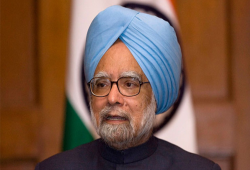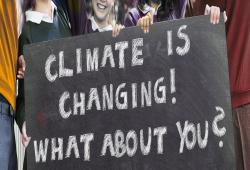
social ones. Economists have their own theory of markets. What they mean is freedom for capitalist markets, where money is the measure of value and the owner of capital has the right to use it as he wishes, including the right to use it only for
accumulating even more capital rather than investing it in society.
The Nobel Laureate economist Angus Deatonre is critical. He says, "we often too sure that we are right. Economics has powerful tools that can provide clear-cut answers, but that require assumptions that are not valid under all circumstances. The profession knows and understands many things. Yet today we are in some disarray. We did not collectively predict the financial crisis and, worse still, we may have contributed to it through an overenthusiastic belief in the efficacy of markets, especially financial markets whose structure and implications we understood less well than we thought.”
Modern economists don't understand how societies and economies function. The time has come for a new economics that will bring humanity back into capitalism.
For economists, the solution to all complex problems is the same: leave it to the market. They mean freedom for capitalist markets, where money is measure of value, and owner of capital has the right to use it as he or she wishes, including the right to use it only for accumulating even more capital rather than investing it in society.
Nobel laureate Angus Deaton is critical of his fellow economists in his March 2024 IMF paper, 'Rethinking My Economics'. He writes, 'The profession knows and understands many things. Yet today we are in some disarray. We did not collectively predict the financial crisis and, worse still, we may have contributed to it through an overenthusiastic belief in the efficacy of markets, especially financial markets whose structure and implications we understood less well than we thought.... Economics has powerful tools that can provide clear-cut answers, but that require assumptions that are not valid under all circumstances....'
For economists, the solution to all complex problems is the same: leave it to the market. They mean freedom for capitalist markets, where money is measure of value, and owner of capital has the right to use it as he or she wishes, including the right to use it only for accumulating even more capital rather than investing it in society.
The global financial crisis in 2008 revealed structural weaknesses in economies. Irrational exuberance in deregulated financial markets in the US and Britain had disrupted economies. A high-level international commission, chaired by another Nobel laureate Michael Spence, brought together 22 policymakers, academics and business leaders to examine aspects of economic growth and development. The group published The Growth Report in 2009.
Elaborating on the report, Spence said that liberal market theories explain how to make economic growth faster. They don't explain how to make growth inclusive. The models assume that macro growth lifts all boats, and wealth will trickle down as it accumulates. However, 'trickle-down' doesn't happen automatically. As Thomas Piketty revealed in his 2013 book translated into English as Capital in the Twenty-First Century, wealth had been flowing upwards since the 1990s with the ideology of 'leave it to the market and get governments out of the way' pervaded policies from the 1980s.
Many citizens are self-employed because they can't get regular wage-paying jobs. Studies also reveal that the actual earnings of self-employed workers have declined by 0.76% between 2019 and 2023. Worse, the real earnings of regular wage workers declined by 2.05%.
Market is an ancient idea. People traded many things in markets centuries before the advent of modern stock markets and financial trading. But in capitalist circles, the answer to the question, 'How is the market doing?' is to report on how Dow Jones, Nasdaq and Sensex did overnight.
21st-century economics doesn't have a theory of how to improve inclusion along with growth. In capitalist economies, everything can be bought for money and converted into the buyer's property to use as he wants. Land, mineral resources and forests become commodities in financial markets. Their owners can use them to extract the maximum economic value and sell their assets to others whenever they want.
Market is an ancient idea. People traded many things in markets centuries before the advent of modern stock markets and financial trading. But in capitalist circles, the answer to the question, 'How is the market doing?' is to report on how Dow Jones, Nasdaq and Sensex did overnight.
The concept of labour market is an abomination. Human beings are not commodities. They get dignity from the dignity given to the work they do. Humans can be bought and sold for money in slave markets. Labour is a commodity in contract labour markets. Its price is negotiated between workers and employers who need them to work to make profits and who can withhold payments when they will.
Every citizen is a potential customer in markets. However, every consumer is a human, who needs enough in his or her wallet to buy the stuff that is available when markets are opened to imports. If citizens don't have decent jobs to earn enough, internal markets will not grow.
... market theories explain how to make economic growth faster. They don't explain how to make growth inclusive. The models assume that macro growth lifts all boats, and wealth will trickle down as it accumulates. However, 'trickle-down' doesn't happen automatically. As Thomas Piketty revealed in his 2013 book translated into English as Capital in the Twenty-First Century, wealth had been flowing upwards since the 1990s with the ideology of 'leave it to the market and get governments out of the way' pervaded policies from the 1980s.
India's FM pleads investors to invest and make India's GDP the third largest in the world. Even if GDP increases, what about the incomes of Indians? Even in PPP terms, GDP per capita was $7,096 in India in 2017, compared to $13,470 in South Africa, $18,188 in China, and $64,703 in the US.
Many citizens are self-employed because they can't get regular wage-paying jobs. Studies also reveal that the actual earnings of self-employed workers have declined by 0.76% between 2019 and 2023. Worse, the real earnings of regular wage workers declined by 2.05%.
Modern economists do not acknowledge how societies and real economies function. By the last century's end, free market fundamentalism became an ideology. With the shame attached to socialism by the Washington Consensus, free market capitalism and unfettered trade became economics.
Behind the invisible hand is the power of capital. Rights of capital and its freedom to roam the world and make more profits trump the rights of humans moving across borders and searching for safer lives. The time has come for a new economics to put humanity back into capitalism.
[This column was published in The Economic Times on 17April2024]







